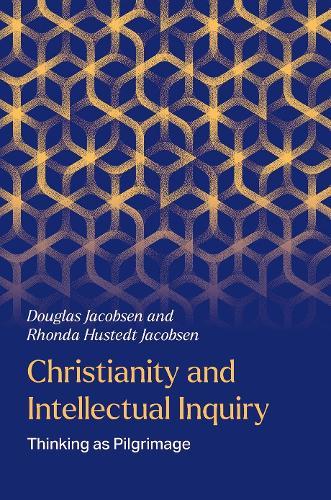Overview
America has entered a new intellectual era in which personal identity is assumed to play a significant role in how every person thinks. Today's academy acknowledges that who we are shapes how we view ourselves and the world, which unavoidably injects religion, spirituality, secularity, and faith-a person's deepest convictions, commitment, hopes, fears, and loyalties-into the thinking process. The new emphasis on individual identity has made academic methodologies broader and more multifaceted, enlarging the pursuit of truth but sometimes leading to unsupported and false claims about reality.Christianity and Intellectual Inquiry focuses specifically on how American Christians are trying to negotiate this new terrain. The first section of the book recounts the long, complex, and diverse history of Christian reflection on the connections between faith and learning. The second section analyses the past 150 years of American thinking, tracing the changing intellectual paradigms that governed how all Americans reflect on reality and describing how Christians made their ways through the evolving landscape. The third and final section proposes a new way of understanding intellectual inquiry that is relevant for thinkers of all religious and secular persuasions and minimizes the potential for identity-informed thinking to go astray: thinking as pilgrimage. Pilgrimage thinking recognizes that faith of some kind plays a role in how everyone tries to understand and make sense of reality while also insisting that religious convictions and markers of personal identity are not beyond critique. Thinking as pilgrimage is not dependent on one all-encompassing cognitive orientation but instead encourages a range of approaches to reality. Four specific intellectual pathways are discussed in detail: attentiveness, contemplation, proclamation, and compassion. Both American higher education and Christianity use all four cognitive pathways, and each path is a shared space where people who are seeking a better understanding of reality can challenge and learn from each other.
Full Product Details
Author: Douglas Jacobsen (Co-Director, Co-Director, Religion in the Academy Project) ,
Rhonda Hustedt Jacobsen (Co-Director, Co-Director, Religion in the Academy Project)
Publisher: Oxford University Press Inc
Imprint: Oxford University Press Inc
Dimensions:
Width: 16.50cm
, Height: 2.30cm
, Length: 22.90cm
Weight: 0.476kg
ISBN: 9780197820346
ISBN 10: 0197820344
Pages: 232
Publication Date: 09 December 2025
Audience:
Professional and scholarly
,
Professional & Vocational
Format: Hardback
Publisher's Status: Forthcoming
Availability: To order

Author Information
Douglas Jacobsen (Ph.D., University of Chicago) is a scholar in the field of religious studies and Rhonda Hustedt Jacobsen (Ed.D., Temple University), is a psychologist and scholar of higher education. Together they co-direct the Religion in the Academy Project, and their innovative work has enhanced teaching and scholarship at colleges and universities around the world. This is their fourth book with Oxford University Press.



